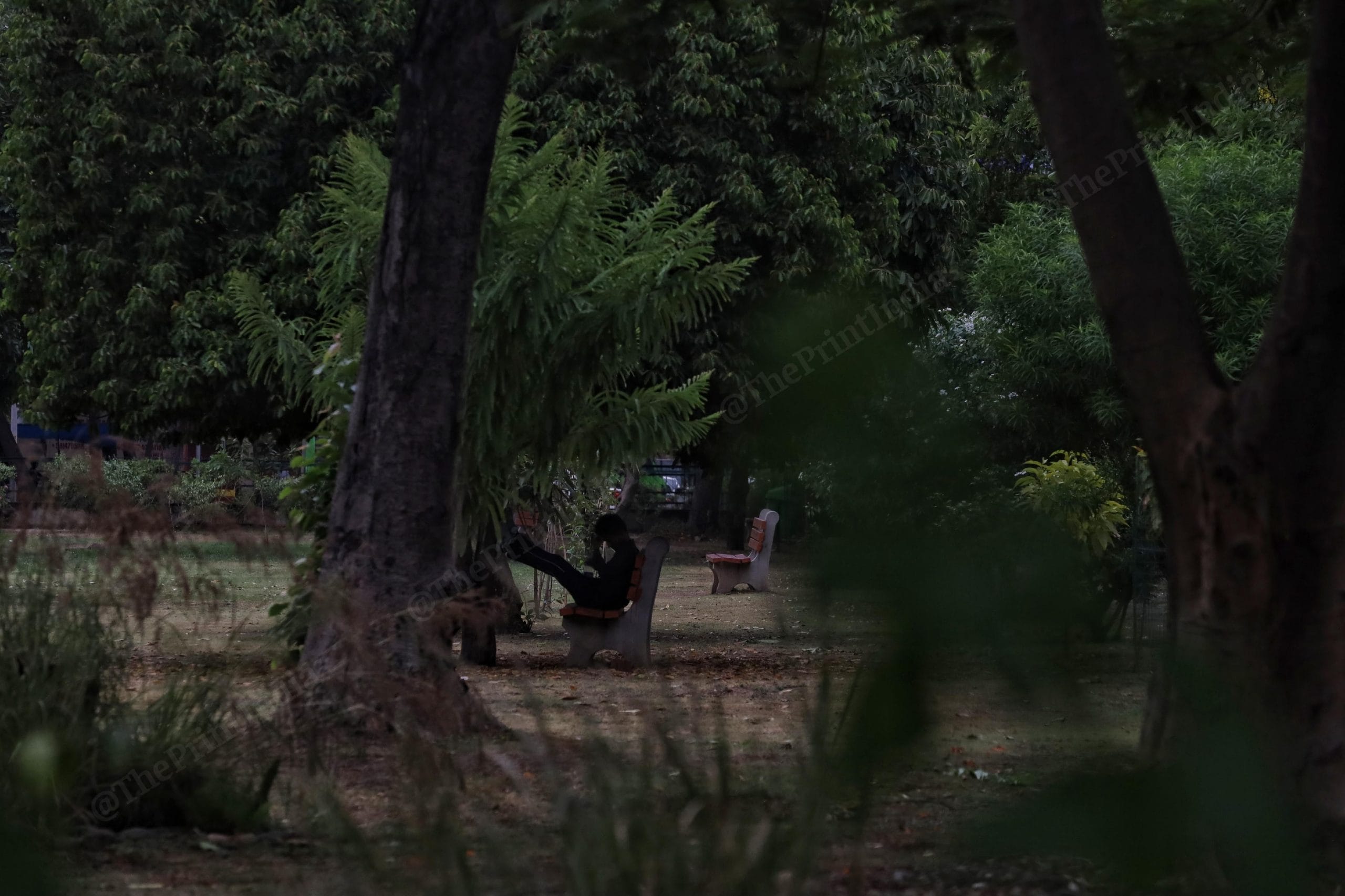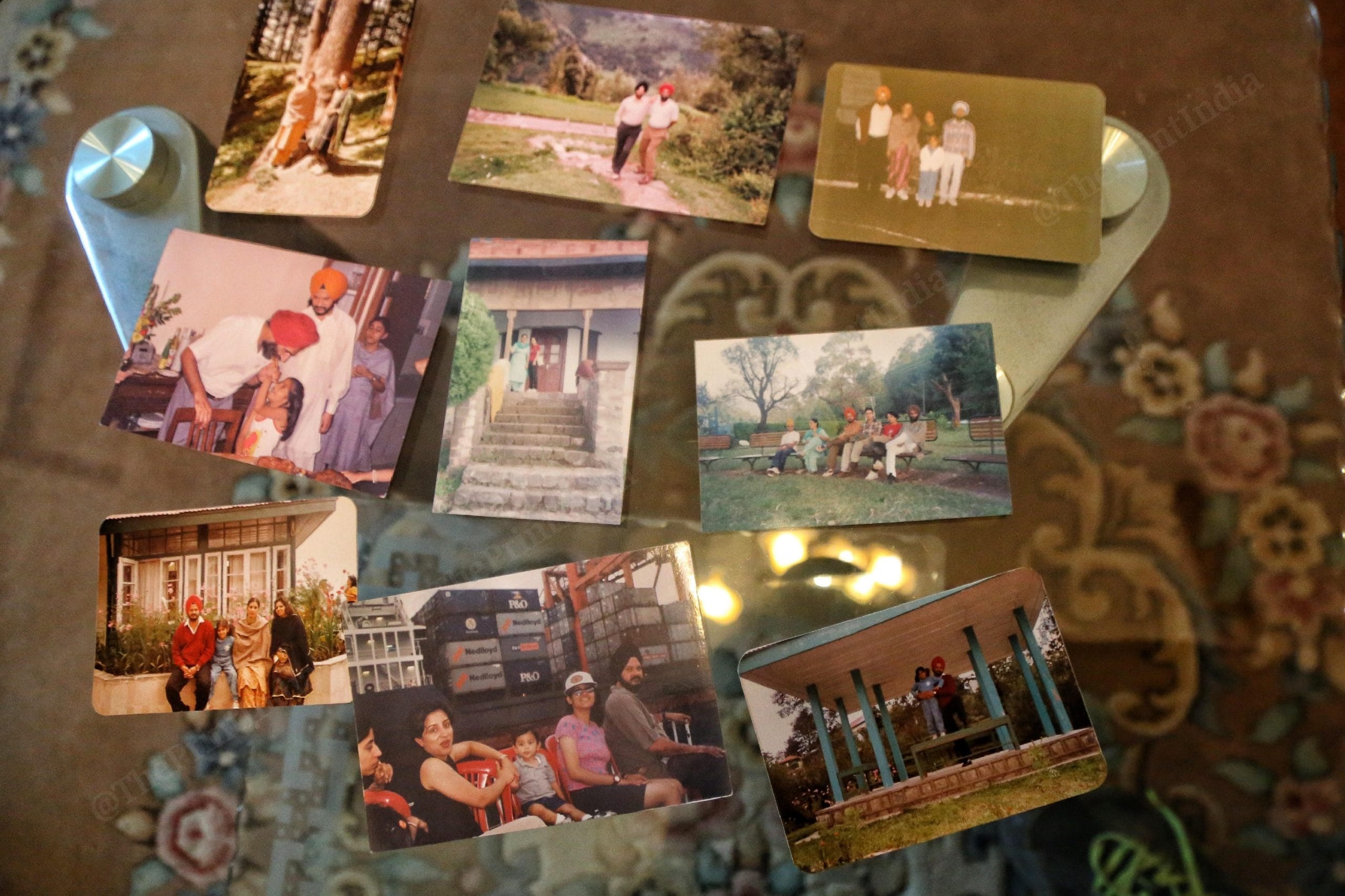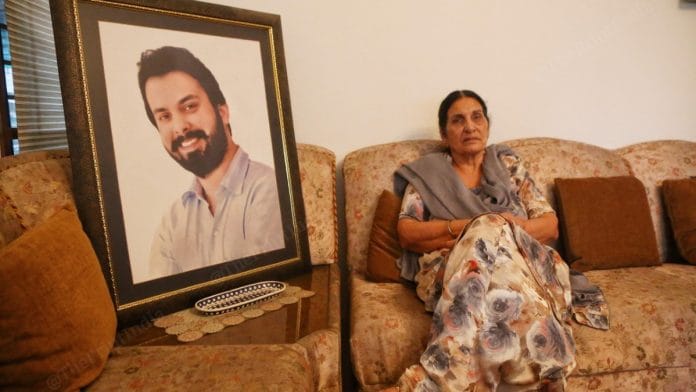Chandigarh: Every year since her son was killed in 2015, Deepinder Kaur has visited the park where Sukhmanpreet Singh, alias Sippy Sidhu, was found shot dead, to hold a candlelight vigil calling for justice. Nearly seven years later, the family hopes justice may be possible.
On 15 June, the Central Bureau of Investigation (CBI) arrested Kalyani Singh — the daughter of the acting chief justice of the Himachal Pradesh High Court — in connection with the alleged murder of Sidhu, her former boyfriend.
Key questions about the case remain unresolved, with the CBI failing to identify an assailant who allegedly helped Kalyani carry out the murder, and also being unable to locate the firearm used in the attack.
“The arrest has given hope for justice. It has been too long a struggle” Sidhu’s mother, Deepinder Kaur, told ThePrint.
Kalyani’s lawyer, Sartej Singh Narula, issued a short statement saying that his client was innocent. “The family has faith in the judicial system. She is innocent and has been framed. Truth shall prevail,” the lawyer said in a statement to ThePrint.
Sidhu was 34 at the time of his death. A lawyer by profession, Sidhu was a national-level rifle shooter, who was part of a team that won a gold medal at the 2001 National Games held in Punjab. Kalyani, 36, is a professor at a college in Chandigarh, according to police records.

Sidhu’s family said they’d had good relations with Kalyani’s family for nearly 30 years, and shared family photos with ThePrint at their residence in Mohali on Friday.
It was a high-profile case that rocked Chandigarh and grabbed media headlines for a long time given that both families came from influential backgrounds. Like Kalyani’s mother who is a senior judge, Sidhu’s grandfather was a judge of the Punjab and Haryana High Court.
Also Read: ‘Gang rivalry’ to ‘victim of gang violence’: Why AAP has shifted stance on Moose Wala killing
‘Close relationship’
According to the remand application filed by the CBI at a Chandigarh court on 15 June, a copy of which ThePrint has seen, Kalyani was in a “close relationship” with Sidhu and wanted to marry him. However, the CBI claims Sidhu’s family opposed the marriage. According to the agency, Sidhu later shared some “objectionable photographs” of Kalyani with her family and friends — which caused her “embarrassment.”
Kalyani then allegedly contacted Sidhu through the mobile phones of “other persons” between 18 and 20 September 2015, and asked him to meet, the CBI document said. On 20 September, Sidhu met Kalyani at a park in Chandigarh’s Sector 27, where his bullet-riddled body was later found.
On Friday, ThePrint visited the park, which is located in a residential area about 7 km away from Kalyani’s residence and 11 km away from Sidhu’s residence.
“There is evidence confirming the presence of accused Kalyani Singh with deceased Sippy Sidhu in Sector 27 park in the evening (of 20 September 2015). Investigation has further revealed that one unknown assailant and accused Kalyani Singh killed deceased Sippy Sidhu by using the firearms,” reads the remand document.
A senior officer in the Chandigarh Police said that a case of murder was registered on 21 September 2015, but it was transferred to the CBI in January 2016 as the police were unable to make any headway, despite questioning Kalyani on multiple occasions for more than a month.
The police officer said Kalyani’s mother, Justice Sabina, was a judge of the Punjab and Haryana High Court at the time of the incident. She was transferred to the Rajasthan High Court on 7 April 2016. The CBI registered a fresh FIR a week after Justice Sabina’s transfer order was issued.

Sidhu’s younger brother, Jasmanpreet Singh, told ThePrint that on 20 September 2015 Sidhu had left home saying he was going to meet Kalyani. The family, he said, was unable to understand why it took so long to press charges against her.
Also Read: Khalistan on the Pacific: How the gangs of Punjab were born in Canada
Probe used various strategies
In September 2016, the CBI announced a reward of Rs 5 lakh to anyone providing clues in the high-profile case. The reward announcement had a ‘cryptic message’ stating that the role of a woman was suspected and sthat he would be considered a party to the offence if she did not turn up before the agency, said an investigation officer, adding that the strategy did not work.
In the remand document, the CBI mentions that it conducted a polygraph test on Kalyani, in which she was found to be “deceptive” and “evasive in answering relevant questions”. Under Indian law, polygraph tests are not admissible as evidence in criminal trials.
An investigation officer, who did not wish to be identified, said the CBI had identified three people whose mobile phones Kalyani had used for making calls to Sidhu, and recorded their testimonies. But investigators were still unable to join the dots to establish what happened next, said the officer.
On 7 December 2020, the CBI filed a report in a Chandigarh court saying that the investigation had been “inconclusive”, but requested that the probe be allowed to continue, the officer said.
The case took a turn only when three eyewitnesses approached the CBI one after another over the past one-and-a-half years, with specific details, said the officer, adding that their testimonies helped the CBI establish the sequence of events concerning Sidhu’s killing, as well as Kalyani’s alleged role.
In its remand application on 15 June, the CBI claimed that it had “evidence confirming the presence of” Kalyani at the crime scene when Sidhu was killed. The federal agency also said that it had evidence to establish that Kalyani was seen running from the spot.
According to a source, the eyewitnesses also saw Kalyani — who they identified following her arrest, when a test identification parade was conducted — get into a car parked in a residential colony outside the park.
ThePrint reached out to two out of the three witnesses who deposed before the CBI through phone calls and messages. One did not respond, while the other refused to comment on the matter.
(Edited by Tony Rai)
Also Read: Don’t single out Punjab for gun violence. Data tells a different story






